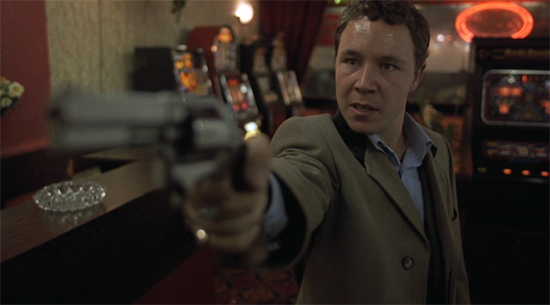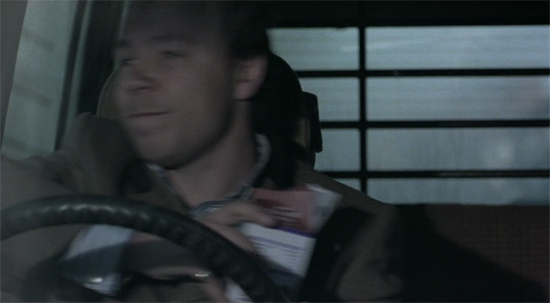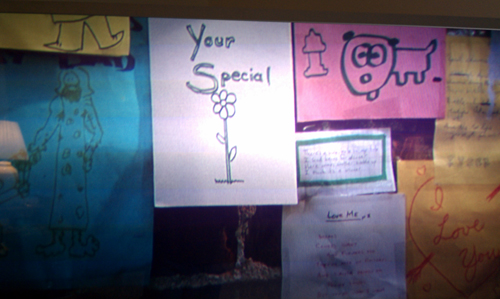“Snatch” is one of my absolute favorite movies, one I’ve seen so many times that mathematicians may not yet have discovered how to express the number. But like the experience I had yesterday with “Mr. Deeds” a recent viewing brought out a minute detail that made me think about one of the characters in a new light.
In this case, it’s Tommy (Stephen Graham), the sidekick of boxing promoter Turkish (Jason Statham) who spends much of the movie cast in the light of a wannabe tough guy nobody takes seriously. When Tommy speaks up during a meeting with a local kingpin, the boss responds by scolding Turkish, “Oh f— me, your lady friend got a voice?” Turkish does a fair bit of this himself, making fun of Tommy’s seeming paranoia about his safety at several points throughout the story.

A trembling Tommy pulls his non-functional gun on a group of gangsters
But it’s in one of the movie’s pivotal scenes that Tommy’s real nature shows. He’s driving with a milk-drinking Turkish in the passenger seat. Tommy gives a speech about how humans haven’t evolved to properly process dairy products, and says he’s doing Turkish a favor when he snatches the carton from his hand and throws it out the window. The carton lands on the windshield of a passing car, which just happens to be carrying another set of key characters.
Every time I watched this scene play out before it seemed like a complete accident on Tommy’s part, just a coincidence of timing. But if you focus on his eyes as he throws the carton, something very different is revealed.

He’s clearly looking to the other side of the road where he could see everything that’s coming at him. Given that his throw lands squarely in the center of the passing windshield, this was a precision, calculated shot — not an accident. Tommy took that carton of milk and used it as a weapon. He could have waited an extra second for that car to pass, but he didn’t. Even his expression shows a serenity about what he’s doing. He’s almost smiling.
Tommy is a ruthless dude.

